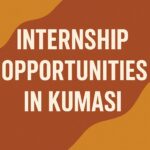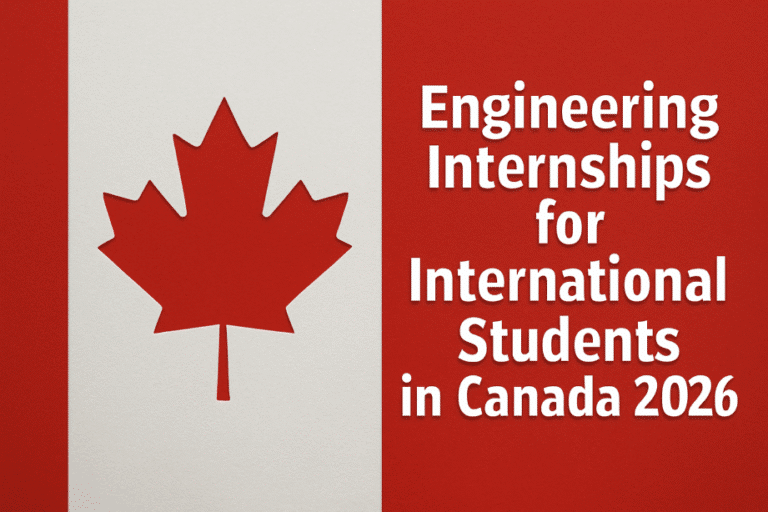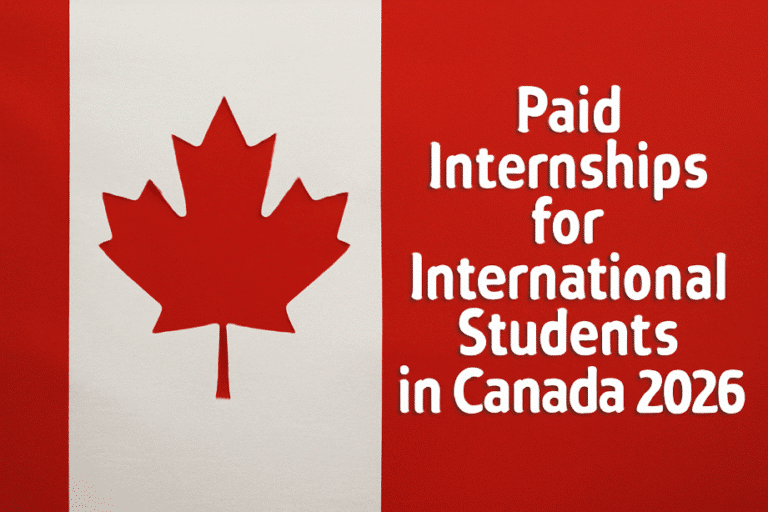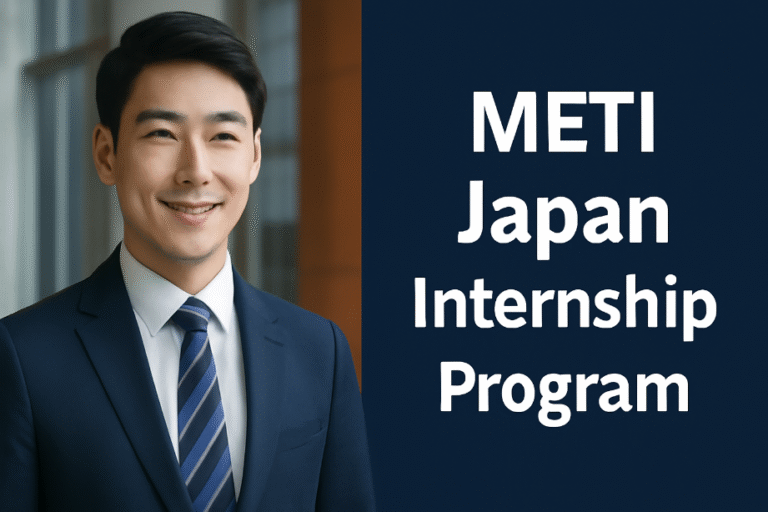How To Apply For Internship in Ghana: The Complete Guide from 12 Years of Placement Experience
After twelve years of helping over 1,200 Ghanaian students and graduates secure meaningful internships across the country, I’ve learned that the application process is both an art and a science. Today, I’m sharing the exact strategies, templates, and insider knowledge that have helped my mentees land internships at companies like MTN Ghana, Unilever Ghana, Ecobank, and hundreds of other organizations.
When I started my career in 2012 as a career counselor at the University of Ghana, I quickly realized that most students were approaching internship applications all wrong. They were sending generic CVs, writing bland cover letters, and missing crucial opportunities simply because they didn’t understand the process. Let me change that for you.
Understanding Ghana’s Internship Landscape
The Current State of Internships in Ghana
Ghana’s internship market has evolved dramatically over the past decade. I’ve witnessed the transformation from informal arrangements to structured programs with clear application processes. Today, over 60% of major Ghanaian companies offer formal internship programs, compared to just 25% when I started.
Key Statistics from My Experience:
- Average application success rate: 15-20% for well-prepared candidates
- Typical internship duration: 3-6 months
- Peak application periods: March-April and September-October
- Response time: 2-6 weeks for most organizations
Industries with the Most Opportunities
Based on my placement data, here are the sectors offering the most internship positions:
- Banking and Finance (28% of placements)
- Telecommunications (18% of placements)
- Oil and Gas (15% of placements)
- Manufacturing and FMCG (14% of placements)
- Technology and Startups (12% of placements)
- Mining and Natural Resources (8% of placements)
- Healthcare and NGOs (5% of placements)
RELATED:
- Paid Internship Opportunities in Accra 2025: Your Gateway to Professional Success in Ghana’s Capital
- Cyber Security Internship in Ghana: Your Gateway to a Thriving Tech Career
The Complete Application Process: Step-by-Step
Step 1: Research and Target Selection
I always tell my mentees: “Apply smart, not hard.” Rather than sending 100 generic applications, focus on 15-20 carefully selected opportunities.
My Research Framework:
- Company analysis: Study their recent news, expansion plans, and challenges
- Program research: Look for specific internship programs like MTN’s Graduate Acceleration Program or Unilever’s Future Leaders Programme
- Network mapping: Identify current or former employees on LinkedIn
- Application requirements: Note specific requirements and deadlines
Success Story: Kwame Osei, a finance student from the University of Cape Coast, used this approach to research Ecobank’s operations extensively. During his interview, he presented ideas for improving their mobile banking adoption in rural areas. He got the internship and a full-time offer worth GHS 3,800 monthly.
Step 2: Crafting Your Professional Documents
The Ghana-Optimized CV
After reviewing thousands of CVs, I’ve developed a format that works specifically for Ghanaian employers:
Essential Sections:
- Personal Information (including photo for Ghana market)
- Professional Summary (2-3 lines maximum)
- Education (include WASSCE grades for recent graduates)
- Work Experience (including National Service)
- Skills (technical and soft skills)
- Projects (academic and personal projects)
- Certifications (include any professional courses)
- References (available upon request)
Pro Tip: Many Ghanaian employers still expect a professional photo. Choose a clean, professional headshot against a neutral background.
Cover Letter That Opens Doors
I’ve seen cover letters that got students interviews at companies they never imagined would respond. Here’s my proven formula:
Paragraph 1: Hook with specific company knowledge. Paragraph 2: Highlight relevant experience and skills
Paragraph 3: Demonstrate the value you’ll bring. Paragraph 4: Professional closing with next steps
Real Example: Ama Afriyie’s cover letter to Ghana Commercial Bank started with: “I was impressed by GCB’s recent launch of the G-Money platform and its impact on financial inclusion in rural Ghana. Having conducted research on mobile banking adoption in my final year project, I understand the challenges and opportunities in this space.”
She got the internship and contributed to expanding G-Money’s merchant network.

Step 3: Application Channels and Timing
Primary Application Channels
1. Company Websites (40% success rate). Most major companies post internship opportunities on their careers pages. I maintain a list of 150+ company websites that I check monthly.
Top Companies with Regular Postings:
- Telecel Ghana
- Standard Chartered Bank Ghana
- PwC Ghana
- KPMG Ghana
- Tullow Ghana
- Anglo American Ghana
2. University Career Centers (35% success rate) I work closely with career centers at:
- University of Ghana (Legon)
- Kwame Nkrumah University of Science and Technology (KNUST)
- University of Cape Coast (UCC)
- Ashesi University
- Central University
3. Professional Networks and LinkedIn (25% success rate). LinkedIn has become increasingly important in Ghana. I’ve helped students secure internships through strategic networking.
4. Recruitment Agencies and Job Portals (20% success rate) Platforms like JobsInGhana.com, Tonaton Jobs, and MyJobMag regularly post internship opportunities.
Optimal Timing Strategy
Best Application Periods:
- January-March: For mid-year internships
- August-October: For end-of-year and following year programs
- University vacation periods: May-August and December-January
Success Story: Kofi Mensah applied to Newmont Ghana in February for their summer internship program. His early application, combined with a strong technical background in mining engineering from UMaT, secured him a position with monthly compensation of GHS 1,200 plus accommodation.
Step 4: The Application Submission Process
Online Applications Best Practices
Technical Requirements:
- Use PDF format for documents (unless otherwise specified)
- File names should be professional: “FirstName_LastName_CV.pdf”
- Keep file sizes under 2MB
- Use clear, readable fonts (Arial, Calibri, or Times New Roman)
Following Instructions Precisely: I cannot stress this enough – follow application instructions exactly. I’ve seen excellent candidates rejected because they submitted documents in the wrong format or missed a required field.
Tracking System: Create a spreadsheet to track:
- Company name and position
- Application date
- Contact person
- Follow-up dates
- Status updates
Step 5: The Interview Process
Common Interview Formats in Ghana
1. Panel Interviews (60% of cases). Typically, 3-5 interviewers from different departments. Prepare for questions about your background, technical knowledge, and situational scenarios.
2. Technical Assessments (40% for technical roles). Common in engineering, IT, and finance positions. I always advise students to review fundamental concepts and practice problem-solving.
3. Group Interviews (30% of cases) Increasingly popular for assessing teamwork and leadership skills.
Interview Preparation Strategy
Research Phase:
- Company history and recent developments
- Industry trends and challenges
- Key executives and organizational structure
- Competitors and market position
Practice Questions I Use with Students:
- “Why do you want to intern with us specifically?”
- “How will this internship help your career goals?”
- “What do you know about our recent expansion/challenges?”
- “Describe a project where you solved a complex problem.”
Success Story: Akosua Darko, an accounting student from the University of Professional Studies, spent two weeks researching Deloitte Ghana’s audit methodology and recent client wins. During her interview, she discussed how digital audit tools could improve efficiency. She was selected from over 200 applicants for their prestigious audit internship program.

Industry-Specific Application Strategies
Banking and Finance Internships
Top Targets:
- Ghana Commercial Bank
- Standard Chartered Bank Ghana
- CAL Bank
- Ecobank Ghana
- Fidelity Bank Ghana
Application Tips:
- Highlight quantitative skills and analytical experience
- Include any finance-related coursework or certifications
- Demonstrate understanding of Ghana’s banking landscape
- Show interest in financial inclusion initiatives
Typical Compensation: GHS 800-1,500 per month
Success Story: Yaw Asante’s application to CAL Bank included a detailed analysis of their digital banking strategy. His internship project on improving customer onboarding led to a full-time analyst position with a starting salary of GHS 3,200.
Oil and Gas Internships
Major Players:
- Tullow Ghana
- Eni Ghana
- Kosmos Energy
- Ghana National Petroleum Corporation (GNPC)
- Tema Oil Refinery (TOR)
Application Strategy:
- Emphasize STEM background and technical skills
- Show understanding of Ghana’s oil and gas sector
- Highlight safety consciousness and environmental awareness
- Include any relevant project work or research
Typical Compensation: GHS 1,000-2,000 per month plus benefits
Technology and Startups
Growing Opportunities:
- Vodafone Ghana (technology roles)
- MTN Ghana (digital innovation)
- Farmerline
- Hubtel
- CredoLab
Application Focus:
- Showcase programming skills and technical projects
- Demonstrate innovation and problem-solving abilities
- Show understanding of digital transformation in Ghana
- Include GitHub profile or portfolio links
Typical Compensation: GHS 700-1,800 per month
Common Application Mistakes to Avoid
Critical Errors I See Repeatedly
1. Generic Applications (80% of failed applications). Using the same CV and cover letter for every application is the biggest mistake. I’ve seen students apply to both mining companies and banks with identical materials.
2. Poor Email Communication. Subject lines like “Internship Application” are forgettable. Use: “Internship Application – [Your Name] – [Specific Position]”
3. Inappropriate Email Addresses: Create a professional email: [email protected]
4. Missing Follow-ups: Wait 2 weeks after application, then send a polite follow-up email expressing continued interest.
5. Inadequate Research: Failing to understand the company’s business, recent news, or industry challenges shows a lack of genuine interest.
Documentation Mistakes
CV Errors:
- Spelling and grammatical mistakes
- Inconsistent formatting
- Missing contact information
- Irrelevant personal information
- Poor photo quality (for the Ghana market)
Cover Letter Problems:
- Generic opening statements
- Focusing on what you want vs. what you offer
- Repeating CV information without adding value
- Weak closing statements
Maximizing Your Success Rate
The Network Effect
Building Professional Relationships: I’ve helped students leverage LinkedIn to connect with professionals in their target companies. Here’s my approach:
- Optimize LinkedIn Profile: Professional photo, compelling headline, detailed experience
- Strategic Connections: Connect with alumni working at target companies
- Engage Meaningfully: Comment thoughtfully on company posts
- Informational Interviews: Request brief conversations about career paths
Success Story: Efua Boateng connected with a KNUST alumnus working at Unilever Ghana through LinkedIn. Their conversation led to insider tips about the application process and eventually to an internship in their marketing department.
Leveraging University Resources
Career Centers I Work With:
- University of Ghana Career Centre: Excellent industry connections
- KNUST Career Guidance and Counselling Centre: Strong technical industry links
- UCC Directorate of Academic Planning and Quality Assurance: Growing internship database
- Ashesi Career Services: Premium industry relationships
Alumni Networks: Most universities have active alumni associations. I regularly organize networking events where students meet professionals in their fields of interest.
Professional Development Before Applications
Recommended Certifications:
- Google Analytics (for marketing roles)
- Microsoft Excel/PowerBI (for finance/analysis roles)
- Project Management basics (for any role)
- Digital Marketing (HubSpot, Google Ads)
Language Skills: In Ghana’s diverse business environment, proficiency in local languages can be an advantage. I’ve seen students highlight their Twi, Ga, or Ewe speaking abilities successfully.

Compensation and Negotiation
Realistic Salary Expectations
Based on my placement experience, here are the current market rates:
By Industry:
- Oil and Gas: GHS 1,200-2,200
- Banking: GHS 800-1,600
- Telecommunications: GHS 900-1,700
- Manufacturing: GHS 700-1,300
- Technology: GHS 800-1,800
- NGOs/Healthcare: GHS 500-1,000
By Education Level:
- Bachelor’s degree: GHS 600-1,200
- Master’s degree: GHS 900-1,800
- Technical/Professional certifications: +20-30% premium
Negotiation Strategies
When to Negotiate:
- After receiving an offer
- If you have competing offers
- When the role has expanded beyond the original scope
How to Negotiate:
- Focus on the value you bring
- Reference market rates professionally
- Consider non-monetary benefits (training, mentorship, transportation)
Success Story: Kwabena Okyere negotiated his internship at PwC Ghana from GHS 1,000 to GHS 1,300 by highlighting his CPA coursework and previous audit experience. He approached it professionally, emphasizing his commitment to adding value.
Digital Age Application Strategies
Social Media Presence
LinkedIn Optimization:
- Professional headline beyond “Student at [University]”
- Detailed experience section including projects
- Regular posts about industry topics
- Engage with company content meaningfully
Twitter Professional Presence: Follow and engage with industry leaders and company accounts. Share relevant insights about your field.
Online Portfolio Development
For Technical Students:
- GitHub repositories with clean, documented code
- Personal website showcasing projects
- Kaggle profiles for data science students
For Business Students:
- Medium articles on business topics
- Case study analyses
- Leadership experience documentation
Success Stories and Lessons Learned
Remarkable Transformations
Joseph Amponsah – Started as a shy computer science student at Valley View University. Through our mentorship program, he developed confidence, built a strong portfolio, and secured an internship at Hubtel. His mobile app project during the internship attracted investor attention, and he now runs his own fintech startup employing 12 people.
Grace Asiedu – A biochemistry student from the University of Ghana who was initially rejected by three pharmaceutical companies. We refined her application strategy, focusing on her research experience and laboratory skills. She eventually secured an internship at Kinapharma, contributed to drug quality testing protocols, and now works as a regulatory affairs specialist, earning GHS 4,200 monthly.
Emmanuel Sarpong – An agriculture student from UDS who applied to 15 companies without success. We repositioned his application to emphasize his understanding of sustainable farming practices and rural development. Olam Ghana hired him as an intern in their cocoa sustainability program. He’s now a field coordinator managing relationships with over 200 cocoa farmers.
Key Lessons from 12 Years of Experience
1. Persistence Pays Off: The average successful intern applies to 12-15 positions before getting an offer.
2. Quality Over Quantity: Targeted applications with thorough research consistently outperform mass applications.
3. Timing Matters: Early applications (within the first week of posting) have 3x higher success rates.
4. Follow-up is Crucial: 60% of my successful students sent at least one follow-up email.
5. Network Effects: Students with professional connections have 40% higher placement rates.
Your 30-Day Action Plan
Week 1: Foundation Building
- Assess your skills and career interests
- Research 20-25 target companies
- Update CV and create a master cover letter template
- Optimize LinkedIn profile
Week 2: Application Preparation
- Customize applications for the top 10 targets
- Prepare portfolio/work samples
- Practice interview skills
- Gather strong references
Week 3: Strategic Applications
- Submit 5-7 high-priority applications
- Network actively on LinkedIn
- Attend career fairs or networking events
- Continue research on additional targets
Week 4: Follow-up and Expansion
- Send follow-up emails to earlier applications
- Submit 5-7 additional applications
- Practice interview skills based on responses
- Refine strategy based on initial feedback
Resources for Continued Success
Essential Websites to Bookmark
- Company Career Pages: Check weekly for new postings
- JobsInGhana.com: Comprehensive job portal
- MyJobMag: Growing internship section
- University Career Centers: Your primary support system
Professional Development Resources
- Ghana Institute of Management and Public Administration (GIMPA): Executive education programs
- Institute of Chartered Accountants Ghana (ICAG): Professional accounting certifications
- Ghana Institution of Engineers (GhIE): Technical professional development
Networking Organizations
- Young Professionals Network Ghana
- Ghana Employers Association
- Junior Chamber International Ghana
- Association of Ghana Industries
Final Words of Encouragement
After twelve years of watching students transform their careers through strategic internship applications, I can confidently say that your success is not just about your academic performance – it’s about your approach, persistence, and willingness to learn and adapt.
Every rejection teaches you something valuable about improving your application. Every interview, whether successful or not, builds your confidence and communication skills. Every networking conversation opens potential doors for the future.
The Ghanaian job market rewards graduates who demonstrate initiative, cultural awareness, and genuine commitment to adding value. Your internship is not just a requirement to check off – it’s your gateway to building the professional network and practical experience that will define your career trajectory.
I’ve seen students from every background, every university, and every academic level succeed in securing meaningful internships. What separates the successful ones is their commitment to following a strategic process, learning from setbacks, and maintaining professional relationships.
Your perfect internship opportunity exists. With the strategies, tools, and mindset I’ve shared, you’re now equipped to find it, apply it effectively, and make the most of the experience.
Remember: This is not just about getting any internship – it’s about launching a career that will contribute to Ghana’s continued economic growth while fulfilling your personal and professional aspirations.
The companies I work with are always looking for talented, motivated interns who bring fresh perspectives and strong work ethics. You have something valuable to offer. Now go out there and show them what you can do.
Start your internship application journey today. Your future professional self will thank you for the effort you put in now.









